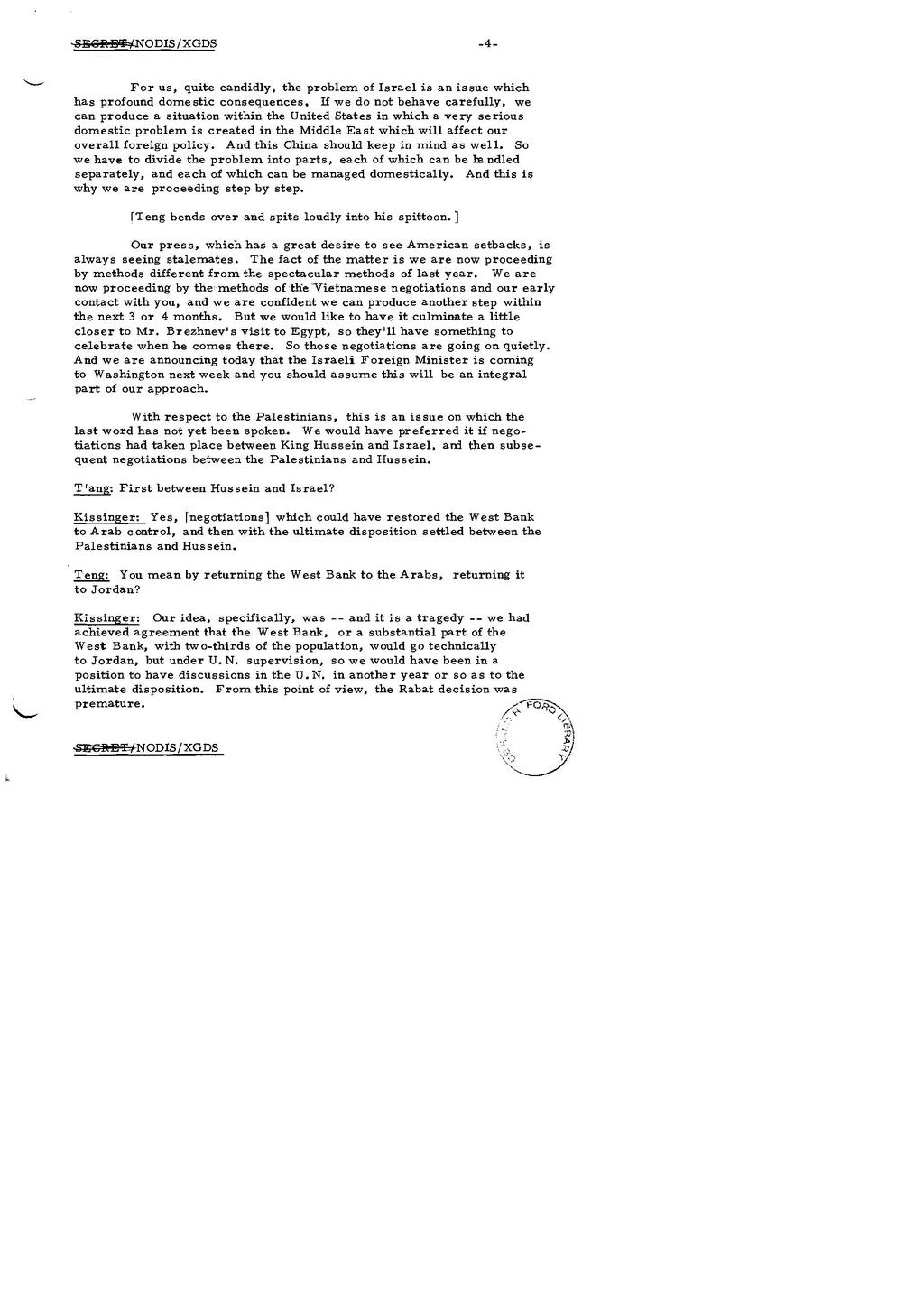For us, quite candidly, the problem of Israel is an issue which has profound domestic consequences. If we do not behave carefully, we can produce a situation within the United States in which a very serious domestic problem is created in the Middle East which will affect our overall foreign policy. And this China should keep in mind as well. So we have to divide the problem into parts, each of which can be handled separately, and each of which can be managed domestically. And this is why we are proceeding step by step.
[Teng bends over and spits loudly into his spittoon.]
Our press, which has a great desire to see American setbacks, is always seeing stalemates. The fact of the matter is we are now proceeding by methods different from the spectacular methods of last year. We are now proceeding by the methods of the Vietnamese negotiations and our early contact with you, and we are confident we can produce another step within the next 3 or 4 months. But we would like to have it culminate a little closer to Mr. Brezhnev's visit to Egypt, so they'll have something to celebrate when he comes there. So those negotiations are going on quietly. And we are announcing today that the Israeli Foreign Minister is coming to Washington next week and you should assume this will be an integral part of our approach.
With respect to the Palestinians, this is an issue on which the last word has not yet been spoken. We would have preferred it if negotiations had taken place between King Hussein and Israel, and then subsequent negotiations between the Palestinians and Hussein.
T'ang: First between Hussein and Israel?
Kissinger: Yes, [negotiations] which could have restored the West Bank to Arab control, and then with the ultimate disposition settled between the Palestinians and Hussein.
Teng: You mean by returning the West Bank to the Arabs, returning it to Jordan?
Kissinger: Our idea, specifically, was -- and it is a tragedy -- we had achieved agreement that the West Bank, or a substantial part of the West Bank, with two-thirds of the population, would go technically to Jordan, but under U.N. supervision, so we would have been in a position to have discussions in the U.N. in another year or so as to the ultimate disposition. From this point of view, the Rabat decision was premature.
SECRET/NODIS/XGDS
